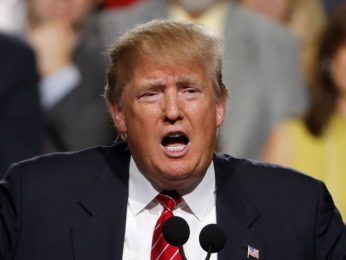
By: Ellie Faust,
During Donald Trump’s campaign, he certainly had an opinion regarding cyber security, but his opinions have been pretty inconsistent. While the president-elect vowed to protect the nation’s networks against foreign spies and criminals, he also encouraged Russian hackers to distribute emails stolen from Democratic nominee, Hillary Clinton.[1] While we do not know much about Donald Trump’s stance on technology policies, we do know that the man loves surveillance and hates encryption.
With Trump’s victory and the reelection of Republican Senator Richard Burr, the chairman of the Senate intelligence committee, the battle over encryption could intensify. Last year, Burr led a failed effort to pass legislation that would require companies to build “back doors” into their products in order to allow the government to evade encryption and other data protection.[2] The tech industry is unwavering in adamantly opposing back doors and believes the government has no right to dictate the design of tech products.[3]
It is likely that Burr will soon reintroduce his encryption legislation. This year, with the support of the White House and Republican majorities in both houses of Congress, the passing of legislation is much more likely. Not to say that Democrats and the more libertarian minded Republicans of the House will not put up a fight.[4]
Many believe that a Trump presidency could very well lead to a restoration of the Patriot Act along with increased pressure on Silicon Valley companies to break encryption.[5] It has become apparent throughout the course of his campaign that Trump is supportive of reinstating the dormant portions of the Patriot Act and the collection of bulk cell phone metadata by the National Security Agency.[6]
Trump’s campaign has always been less than tech friendly. From encouraging a boycott of Apple products to a plea to close off parts of the Internet in order to limit Islamist propaganda, the majority of Silicon Valley is certainly not thrilled about the outcome of this election.[7] The battle between the tech world and Donald Trump has begun. While we wait for the action, there are a few things we can do now to ensure some sort of personal security in the future.
If you are one of the many concerned about the possible increased surveillance, there are a few simple steps you can take to protect yourself now. To keep text messages private, you should look to install a service that provides end-to-end encryption. Apple’s iMessage currently offers this service but only between iMessage users.[8] If you do not have an iPhone, the apps Signal and WhatsApp both offer end-to-end encryption but again, both users need to have the app installed in order for the encryption to work.[9] For those with a questionable search history, the Internet browser, Tor, is the way to go. This browser makes your search activity anonymous by routing the data though a variety of destinations before sending it out to the web.[10] While we do not know what is ahead of us, it never hurts to protect yourself just in case.
[1] See Hiawatha Bray, Trump, the digital authoritarian, Boston Globe (Nov. 10, 2016), https://www.bostonglobe.com/business/2016/11/09/trump-digital-authoritarian/77tnj7mF95eZManXFOkZ7N/story.html.
[2] See Dustin Volz and Joseph Menn, Trump election ignites fears over U.S. encryption, surveillance policy, Reuters (Nov. 9, 2016, 7:50 PM), http://www.reuters.com/article/us-usa-election-cyber-idUSKBN13503H.
[3] See id.
[4] See id.
[5] See Phil Muncaster, Trump’s Presidency Raises Encryption and Surveillance Fears, InfoSecurity (Nov. 10, 2016), http://www.infosecurity-magazine.com/news/trumps-presidency-raises/.
[6] See David Gilbert, What a Donald Trump presidency would mean for privacy and security, Comparitech (Sept. 6, 2016), https://www.comparitech.com/blog/vpn-privacy/trump-privacy-cyber-security/.
[7] See Volz, supra note 2.
[8] See id.
[9] See id.
[10] See id.
Image Source:
http://www.gannett-cdn.com/-mm-/44780648f78c92d2c4a567d1cd826b912f8e8a29/c=637-87-2091-1180&r=x404&c=534×401/local/-/media/2015/07/12/USATODAY/USATODAY/635723201689613363-AP-GOP-2016-Trump.1.jpg
